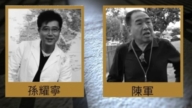【新唐人2013年10月14日讯】多年来,中国大陆教育领域的问题与争议不断,也一直倍受各界关注。最近,正好遇上2013年度“诺贝尔奖”颁布,有人说,10年之后中国人获得“诺贝尔奖”将会成为平常事。但“北大”社会学教授郑也夫则认为:在中国受过中小学教育的人,即使进入“哈佛”等世界名校也不会获得诺贝尔奖。
正在相继颁布的2013年度“诺贝尔奖”,虽然并没有中国人出现在获奖者名单当中,但却引发大陆知识界热议。
“南京工业大学”校长黄维,曾在9月开学典礼上号称:10年之后,在中国出现“诺贝尔奖”将会成为常态。
但“北大”社会学教授郑也夫并不认同这种观点,他在广州的一个教育论坛上指出:“获得诺贝尔奖的中国人,没有一个在大陆受过中小学教育。”
郑也夫强调:在中国受过12年中小学教育的人,即使进入“哈佛”、“耶鲁”等世界名校,也不会获得诺贝尔奖,因为这12年,中国的教育已经把学生修理得丧失了想像力和创造力,只成为一个考试机器。
原中国“首都师范大学教育科学学院”副教授李元华表示,由于大陆教育体制的不合理、不公平,使得学校的竞争压力越演越烈。特别是近些年,当局一味推行教育市场化、产业化。
李元华:“在这个大环境下,和党文化的大背景下,中国教育实际是一个扭曲的教育,是违背基本人性的。所有人都把考试作为一个战争一样去打、去争。然后这里边就把追求知识、追求人生道理这些东西全没有了。”
据了解,中国大陆因为中共的教育体制出现了许多问题,以类型来说,中国普遍存在教育机会不均等现象,以及,城乡教育发展失衡、中小学教师素质偏低;教育经费不足,学校必须经营企业及工厂;中小学生流失率严重,文盲人数增加等。
从1901年到2012年,美国共有298人获得诺贝尔奖,英国有84人、德国66人、法国33人。截至目前,获得自然科学奖项的华人有8位,这其中,只有1998年物理学奖获得者崔琦曾在北京读过小学,而后到香港和美国深造。
旅美中国诗人、作家赵发光:“华人也好、中国的孩子也好,如果他能够摆脱这种固有的模式,很迅速的能够出来,跟这种开放式的教育理念接轨的话,中国的孩子凭他的聪明和勤奋,一定是能够有所成就的。”
在此之前,“诺贝尔奖”得主钱永健曾对外界表示,他是美国科学家,不是中国科学家。他强调:一个成功的科学家一定成长在一个开放的社会、自由的环境中。
对比之下,中国大陆学生因为学习压力大而自杀、他杀等恶性事件频发,让人怵目惊心。
9月14号,江西省抚州市临川二中高三学生雷某,因对班主任的管理不满,而将他割颈杀害在办公室。
6月22号,四川崇州复读生杨媛,因高考成绩与本科线相差6分,而用水果刀自杀。
5月,南京两名中学生,因为无法完成学校留的作业而自杀。
近年来,越来越多的人深感大陆教育弊端严重,很多学生选择留学海外,但即使来到国外,他们还是很难摆脱中共教育留下的阴影。
李元华:“很多到海外来的人,实际上他看的还是中国网站,关注的还是共产党宣传的那套东西。他脑子还没有变。所以在这个环境下,他不可能变成一个真正社会意义上的人,所以在各个领域获得诺贝尔奖实际上就是很困难的。”
就在9月27号,美国伊利诺伊大学香槟分校(UIUC)发生一起校园凶杀案:29岁的中国留学生次永飞(Yongfei Ci),涉嫌将两名女生囚禁在校外公寓,并将其中一名女生杀死。
采访/刘惠 编辑/李谦 后制/李智远
Peking University Professor: China’s Education System Negates Nobel Prizes
In the past few years, China’s education
system has been a controversial issue.
It has regularly drawn public attention.
Regarding the 2013 Nobel Prize, some people have
commented that in ten years time, it could be a normal
phenomenon that Chinese people win the prize.
However, Zheng Yefu, a Professor at
Peking University, suggested otherwise.
Although anyone who has studied in primary and
middle school in China, can enter Harvard, he
won’t have the ability to win the Nobel Prize.
No Chinese person won a 2013 Nobel Prize, which
triggered heated discussion in Chinese academic circles.
Huang Wei, President of Nanjing University of Technology,
spoke at an opening ceremony in September.
Huang said that after ten years, it would
become a normal phenomenon for Mainland
Chinese people to win the Nobel Prize.
Professor Zheng Yefu expressed an alternative view,
speaking at an educational forum in Guangzhou Province.
Zheng said that of all the Chinese Nobel Prize
winners, none of them were educated in
primary and secondary schools in China.
Zheng stressed that if Chinese people had accepted
12 years of education in China, even though he could
enter world famous schools like Harvard or Yale,
he is unlikely to be able to win the Nobel Prize.
Twelve years of education in China
has killed creativity and imagination.
They were only turned into an exam machine.
Li Yuanhua, former Deputy Professor of
Capital Normal University commented.
China’s educational system is irrational and unequal.
It causes intensified school competitive pressure.
Especially in recent years, the regime blindly pursues
market-oriented and industrialization education.
Li Yuanhua:"Under the Chinese Communist
Party (CCP) environment, education is
distorted and is against basic human nature.
People regard examinations as a war to compete in.
To pursue the knowledge and truth of life are missing."
Sources said that there were many problems
occurring in China’s educational sector.
This included unequal opportunities for education, and
imbalance of education between rural areas and cities.
Teaching quality is also poor.
Due to insufficient education funds,
schools have to run some businesses.
Students attrition rate and illiterate
rate has seriously increased.
From 1901 to 2012, there were 298 Nobel Prize winners
in the US, 84 in the UK, 66 in Germany and 33 in France.
There were 8 Chinese people who
have won natural science awards.
Cui Qi won the Nobel Prize in Physics in 1998,
and had studied in a primary school in Beijing.
Later however, he had studied in Hong Kong and the US.
Zhao Faguang, US-based Chinese poet and writer:
“For Chinese children, if they can get rid of inherent
education, they can become outstanding quickly.
When they accept open-style education,
with their intelligence and hard work, they
certainly will have great achievements."
Nobel Prize winner Qian Yongjian has said that
he was not a Chinese scientist, but a US one.
Qian emphasizes that a successful scientist must
grow up in an open society, and a free environment.
Chinese students committed suicide and homicide
occurred frequently due to the pressure of studies.
On Sept. 14, a student with family name Lei,
in Linchuan No.2 High School in Fuzhou City,
Jiangxi, cut the class teacher’s neck in the office.
This was because of dissatisfaction
with the teacher’s management.
On June 22, a student named Yang Yuan in Chongzhou,
Sichuan, cut her wrist with a fruit knife because of being
6 marks behind the college entrance examination.
In May, two students in Nanjing committed suicide
after “failing to complete homework assignments."
In recent years, more people have deeply felt the
education system has displayed serious problems.
Many students choose to study abroad.
Although studying overseas, it is still difficult for
them to get rid of the CCP educational shadow.
Li Yuanhua: “Many of them traveled
abroad, but they still visit Chinese websites.
They are still absorbed in CCP propaganda,
and their minds remain unchanged.
Under such circumstances, they couldn’t merge
into the society, so it is hard to win Nobel Prizes."
On Sept. 27, a murder took place at the
University of Illinois at Urbana-Champaign.
A 29-year-old Chinese student named Ci Yongfei, allegedly
locked two female students in an apartment outside school.
Ci was accused of killing one of them.






























